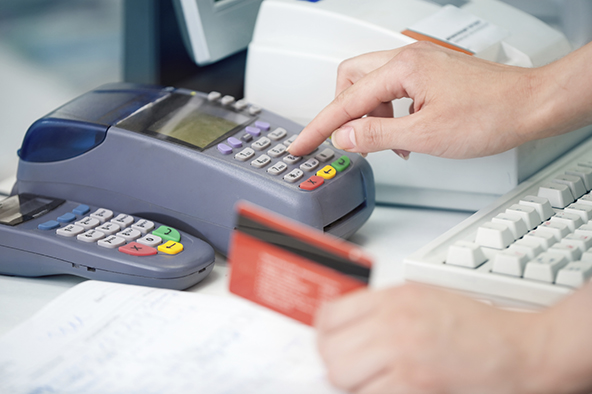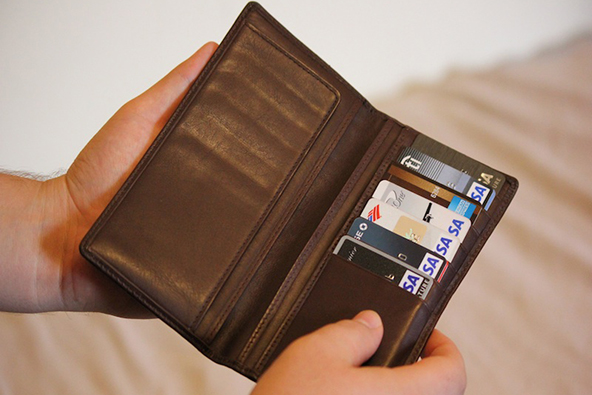Banks May Limit Debit Card Transaction Size to Fight Fee Limit

Some of the biggest U.S. banks, including JPMorgan Chase, Bank of America and Citigroup are considering placing a limit on the amount of debit card transactions in the latest phase of their battle with retailers and legislators over the size of interchange fees — the amount card issuers charge merchants for each transaction involving one of their cards. Currently, interchange fees are set biannually by Visa and MasterCard.
Banks Mulling $50 – $100 Debit Transaction Limits
JPMorgan Chase is said to be considering placing a $100 limit on debit transaction size, if the interchange fee limit, proposed by the Federal Reserve, goes into effect in April in its present form. Other top-tier banks are mulling limits in the range $50 – $100.
The idea behind the move is to force consumers to use credit rather than debit cards for their larger purchases. The reason this makes sense for banks is that the proposed interchange cap would replace the existing rate, which is made up of a percentage and a fixed amount components (e.g. 1.03% + $0.15) with one consisting solely of a fixed fee of $0.12.
So under the proposed rules, banks would be making much less profit from high-amount debit card transactions. For example, a $10 debit purchase would result in a 1.20% profit for the card’s issuer, while the equivalent amount for a $100 transaction would be 0.12%.
Credit card interchange fees, on the other hand, will remain unchanged. Even under the current rules credit card transactions are much more profitable for issuers, but the debit fee cap will only increase the size of the gap.
The Stakes: Up to $25 Billion a Year
Debit card issuers stand to lose a lot of money from the proposed fee limit. Estimates vary from $13.6 billion in annual revenue, according to CardHub.com report to $25 billion, according to a?áreport from Boston Consulting Group (BCG).
If the $0.12 per debit transaction does go into effect, it would represent a 70 percent decrease from the average fee of $0.44 cents per transaction in 2009, according to Fed’s own analysis.
Americans Love Their Debit Cards
If passed as currently proposed, the effects of the interchange fee rule are likely to be felt even stronger by card issuers in the coming years, as debit card use in the U.S. is on the rise, surpassing credit card use in 2009, according to a study by Javelin Strategy and Research, a consulting company.
In 2009, the share of consumers who said they used a credit card in the previous month fell to 57 percent from 87 percent in 2008, according to the Javelin study, which predicted a further drop to 45 percent in 2010. Debit card use, on the other hand, grew by 5 percent for the period.
The Takeaway: Banks Will Find a Way to Make Up for Their Losses
At this point it seems likely that the $0.12 interchange fee cap will be revised upwards, before it goes into effect next month. Whatever the final version, however, it will still lead to hugely reduced revenues for the card issuers and they have plenty of tools at their disposal that can be used to limit the damage. In addition to placing limits on debit transaction amounts, issuers may start charging fees for using debit cards and limit or altogether eliminate debit rewards programs.
We know how resourceful banks can be even in normal times. Now, with their backs against the wall, their inventive skills are likely to shine even brighter. In the end, “[w]e will be appropriately paid for the services we provide,” as Charlie Scharf, head of retail financial services at JPMorgan Chase told the Wall Street Journal.
Image credit: Chiropractiexl.nl.



You make no distinction in your article between debit cards used as debit cards vs being used as credit cards. The consumer always has the option to use their debit card as a credit card, thereby increasing the cost to the seller, and thereby the profit to the bank, since those transactions are processed at a higher percentage rate, rather than a flat fee.
There seems to be a misunderstanding here. Debit cards cannot be used as credit cards, because there is no credit line behind them. Rather, they are linked to their owner’s bank account.
The Consumers will just go back to writing checks or withdrawing cash for their purchases. Consumers can take charge of this problem if they just refuse to use credit or debit cards. The main area this will hurt though is online shopping which is big today. I guess places like Paypal might become more the way to purchase goods in the future online. I know I will use it as much as possible.
I will not be forced into credit cards if I can’t use my debit card. I will go back to checks and paying cash which is what I do most of the time anyway. I will shop locally and not on the internet and the internet companies will be hurt as well by the actions of the “big banks”.
I swipe my debit card all the time and use the credit button. This is how u get points from chase. Will those types of transactions be limited to the proposed cap?
Banks, searching for ways to work around new proposed limits on debit card fees, may be weighing limiting the size of purchases consumers can make with those cards.
Its costs banks money to produce and provide the service of using debit cards. It is true you can switch it for checks but you still have to buy them, or cash but now you have to Carry the risk of it getting stolen from your pocket or from you shoebox. The reason why they are charging debit card fees is because they have a smaller amount they can cap out on, but not for credit card even though it goes through the same system? And if you use your debit card as credit it still comes out of your account. If you decide you dont want a credit card because it still makes the banks money keep in mind you don’t have to pay a fee and you spontaneously are building your credit, if your making your payments on time. Witch is good if you decide you want to buy a house one day or even finance a car? But ultimately it’s your choice.
Hello Sara,
I’ve written previously on the difference between debit and credit cards and I think you may find the article helpful.
Um, guys, keep in mind that the banks aren’t responsible for these limits, the government is. I find it entirely unsurprising that the result of the law are the exact opposite of what was intended: small businesses are punished and large retailers are rewarded. Such is the case any time the government comes to the “rescue”. Lest we forget, the banks have all the power. Only if you set one bank on another would consumers benefit: when you attack the entire industry, they circle the wagons and defend their ability to make money, which is, after all, their entire purpose for being.